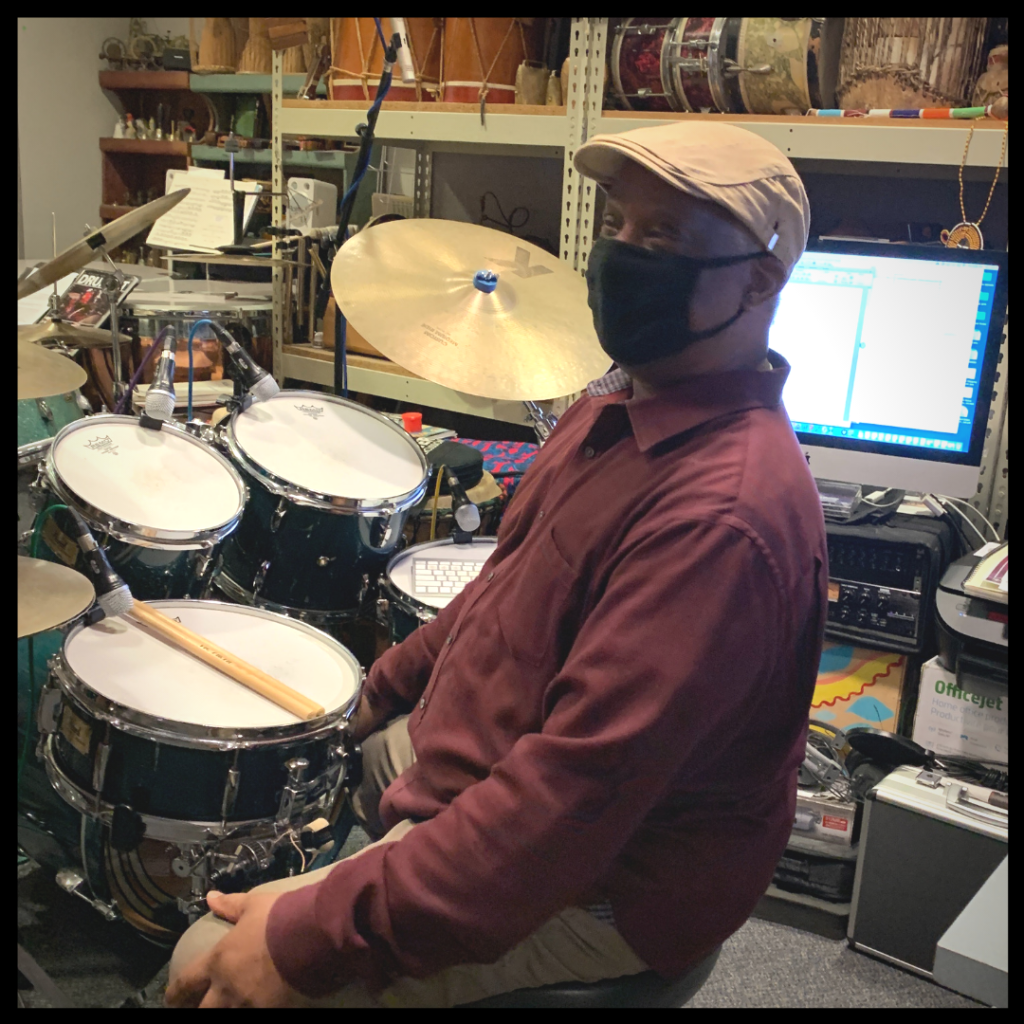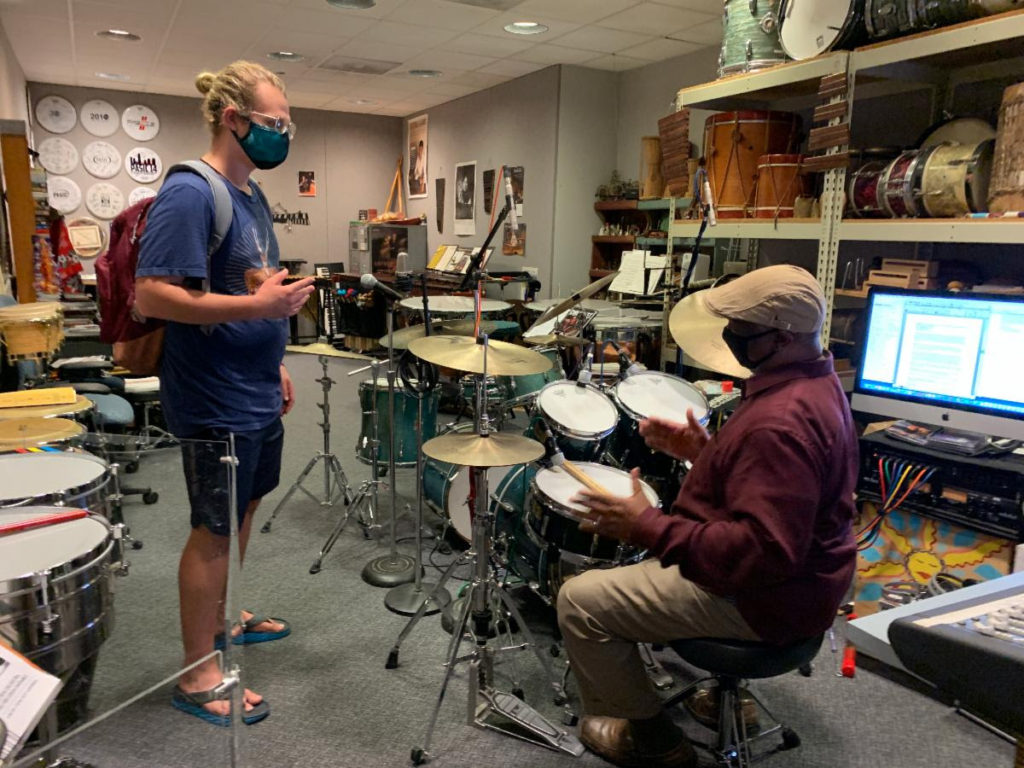
The first thing you notice when you walk into UM Professor Ricky Burkhead’s Percussion Studio is the wealth of instruments — a variety of percussion pieces fill the space, from traditional African drums and instruments hand-made in the Caribbean, to a standard blues/rock drum kit, and bongos, shakers, marimbas, and more.
The next thing you notice is the tech: computers, a mixing board, monitors, amps, mics, recording decks, equipment of all sorts tucked among the percussion instruments.
If the juxtaposition seems incongruous, think again.
As a teaching percussionist, performer, composer, and recording engineer, Burkhead has always balanced the organic satisfaction of playing an analog instrument with the technical realities of playing live and recording. And now, he says, our need to social distance has made this balanced skill-set even more valuable.

“The COVID-19 pandemic forced us to become fairly proficient at video and audio technology,” he said. “All of a sudden, we all had to know the basics of digital audio setups and how to live stream at home. Zoom, Skype, Stream Yard, and a host of other live streaming programs became our lifelines.”
Burkhead is convinced that the increase in use of these technologies is not temporary. “This technology is here to stay and has become commonplace. Students are expected to be somewhat proficient with this technology,” he said.
But recording and live-streaming from home is not easy for a percussionist, in part because percussion can so easily overwhelm microphones used in computers and phones. Built-in mics, he said, “are limited when it comes to producing natural sounds.”
In a recent session for the Historically Black Colleges and Universities National Band Directors Consortium Conference, Burkhead shared his expertise in capturing, editing, and live streaming percussion. He discussed microphone placement for various percussion instruments, interfaces, cables, computer software recording programs, remote recording, and live streaming platforms.

He enjoyed working with band directors, students, and enthusiasts from around the country during the HBCU NBDC conference, and he’s also excited about sharing these same strategies and solutions with his students at UM. While applied lessons always emphasize a student’s development as a musician, Burkhead also helps his students expand their skills with technology.
“The challenge of home recording with percussion or any instrument is having the right gear to give you the best natural sound,” he said. “It is important to have an external microphone, interface, and speakers and/or headphones to give you the best presentation.”
“I expect remote learning, collaboration, and recording to become more and more commonplace. So it is important,” he continued, “to address it where possible.”
After all, he said, the benefits are clear.
“Both remote and in-person collaborations between students can result in creative projects that will contribute to the profession, draw attention to the program, and bring enjoyment to the masses.”
And we’re not arguing with that!



